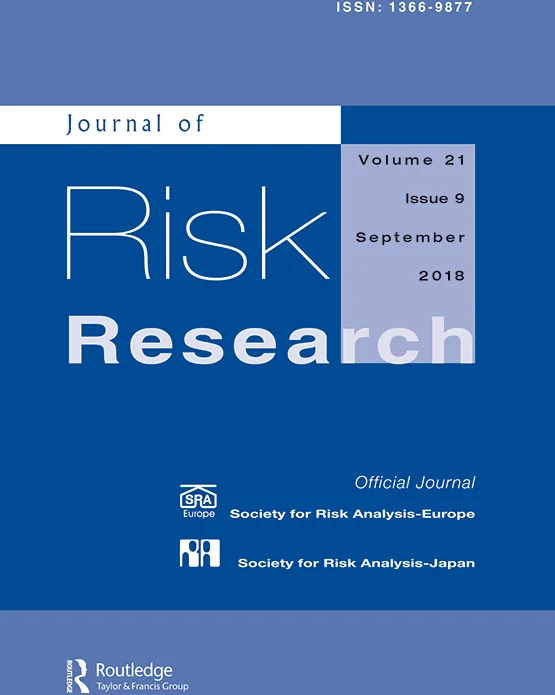接种假新闻风险的限制:新冠肺炎期间新加坡的一项复制研究
IF 1.7
4区 管理学
Q1 SOCIAL SCIENCES, INTERDISCIPLINARY
引用次数: 1
摘要
本文章由计算机程序翻译,如有差异,请以英文原文为准。
Limits to inoculating against the risk of fake news: a replication study in Singapore during COVID-19
Abstract The COVID-19 pandemic laid bare the problem of fake news as one of the defining challenges of our time. The sudden proliferation of fake news and its direct impact on public health and safety led to increasing attention to pre-bunking interventions as a possible tool against the risks of fake news. These studies claimed that it is possible to use pre-emptive interventions such as games to induce cognitive resistance against the deception techniques deployed by fake new producers. We wanted to test if this method could be as effective in a non-Western context, and in an on-going catastrophic risk event. This paper presents the results of a replication study of Roozenbeek and van der Linden’s gaming experiment with certain modifications tailored to the case of Singapore in 2020 in the midst of the COVID-19 pandemic. We could not replicate the results of the original study. However, we found factors that could have accounted for the different results, including high levels of trust in English mainstream media and the government, and positive attitudes towards censorship. We also found that participants were most resistant against conspiratorial deception techniques but also more vulnerable to impersonation techniques. We reflect on what the results of our study say about the limitations of psychology-focused interventions and the need for a wider suite of interventions targeting different levels of analysis, including sociological factors and the risk context.
求助全文
通过发布文献求助,成功后即可免费获取论文全文。
去求助
来源期刊

Journal of Risk Research
SOCIAL SCIENCES, INTERDISCIPLINARY-
CiteScore
12.20
自引率
5.90%
发文量
44
期刊介绍:
The Journal of Risk Research is an international journal that publishes peer-reviewed theoretical and empirical research articles within the risk field from the areas of social, physical and health sciences and engineering, as well as articles related to decision making, regulation and policy issues in all disciplines. Articles will be published in English. The main aims of the Journal of Risk Research are to stimulate intellectual debate, to promote better risk management practices and to contribute to the development of risk management methodologies. Journal of Risk Research is the official journal of the Society for Risk Analysis Europe and the Society for Risk Analysis Japan.
 求助内容:
求助内容: 应助结果提醒方式:
应助结果提醒方式:


